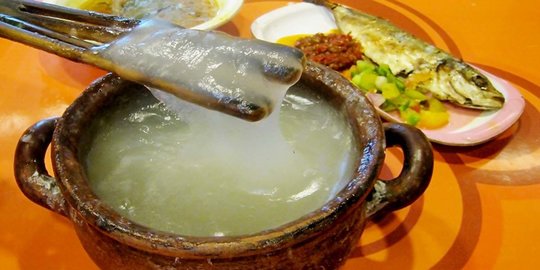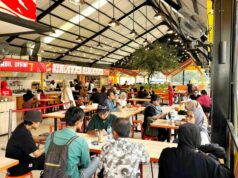Papeda is the oldest culinary and has existed since prehistoric times, you know! This is evidenced by the research of the Papua Archeology Center, Suroto Day. The basis is the findings of pottery and stone tools tokok sago at archaeological sites in the Lake Sentani area.
Papeda food is cooked using an earthenware container and the tradition of pottery in Papua has been known since prehistoric times, around 3000 last year.
Cited page, Tempo.co, Hari said that the knowledge of using pottery and the technology of making pottery was introduced by Austronesian-speaking people.

Next, pottery culture began to be known from the northern coast of Papua and the islands off the coast of Papua. And sago palms only grow in the lowlands of Papua.
Nah, therefore Papeda culture in Papua is only known in the northern coastal areas of Papua, Papua's Bird's Head coast, and the islands off the coast of Papua. Papeda is unknown in the mountainous regions of Papua and the southern coast of Papua.
Then sago starch became the main ingredient for making Papeda. Sago with bananas, will come, coconut, breadfruit, and sugarcane became the staple food of the Papuan community.
Papeda itself is a kind of sago porridge. There are two types of Papeda, namely Hot Papeda and Wrapped Papeda.
Hot papeda at a glance looks like porridge made from sago starch with lime juice, then doused with boiling water. Hot Papeda is enjoyed with a side dish of yellow sauce fish and vegetables stir-fried papaya leaves.
The Papeda wrap is Papeda wrapped in fotofe or forofe leaves (a kind of banana leaf).
How to make Papeda wrap is to take enough hot Papeda then wrapped in fotofe leaves. Let stand a few moments until Papeda cool, then you can enjoy.
Read it too, This Indonesian Cuisine is Suitable for Vegetarians













